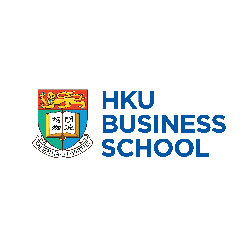Engineer Peter Melrose is looking to branch out with a part-time MBA. He explains why he chose the MBA at HKU and how his experience is helping him develop
What can an MBA do for an experienced engineer? Engineering skills and an MBA degree work well together. The majority of MBA employers actively seek business school graduates with engineering capabilities, made up of technical and quantitative skills.
An MBA can give an engineer a broader understanding of how business works, the skills to advance to leadership positions, and an international outlook. It can also guide an engineer towards a career change if, and when, they see fit.
The latter is exactly the reason why Peter Melrose decided to pursue a part-time MBA. After five years of working in London, the New Zealand-born engineer decided that he wanted to discover business in Asia and joined the in 2019.
Several months in and Peter has already developed a new perspective on his career.
Why HKU?
When choosing a business school, Peter was drawn to the flexibility of HKU’s part-time course. The MBA is offered in both weekday and weekend modes, with each module lasting around five weeks.
Peter attends classes twice a week on weekday evenings, and works as a senior consultant with Command, a Hong Kong recruitment firm, during the day, which he says gives him enough time to keep active with sporting activities during the weekend.
The experience is not dissimilar to night school, providing Peter with a concentrated schedule every day.
As one of the top MBAs in Asia, the part-time course has a strong focus on preparing professionals for senior careers in the region.
It does this by recognising five key themes which are critical to the success of Asian firms today: entrepreneurship, innovation & operations management, financial management, managing in China & Asia, and marketing & services management.
HKU students are taught the management skills and analytical tools related to these themes through business scenarios and case studies based on real situations at well-known Asian and global companies.
While he values this curriculum, Peter says he’s gained much more than knowledge from the MBA experience.
“The friendships and networking that you build are worth as much as what you gain from the syllabus itself,” he says. “I feel we have a strong connection that will continue to grow over the next two years.”
Changing skillset
Peter initially joined the HKU Part-Time MBA as an engineer, uncertain about which industry he wanted to move into, but he says the program has given him a window into numerous professions and industries.
He works on his teamwork, problem solving, communication, and interpersonal skills both in and outside of the course curriculum.
As the representative for his class, Peter frequently acts as the liaison, connecting his classmates and faculty members to correspond on class scheduling, location, and teaching methods.
These factors have improved Peter’s approach to his consulting work too. Every day, he is learning from mistakes and identifying where improvements could have been made when working on projects. He says the communication skills he's gained from the MBA have helped him in his role, giving expert advice to senior business people in Hong Kong.
“In addition to a wider network, experience in handling difficult situations and learning new skills, I now find myself more engaged at work,” Peter says. “I question why things are the way they are, rather than simply accepting the status quo.”
An MBA, he says, is the perfect way for an engineer to broaden their skillset and their career options.
Student Reviews
The University of Hong Kong (HKU) - MBA Programmes HKU Business School
Academic
Very good academic, caes course amazing, ccs are all amazing, professors are excellent, the architecture and infrastructure is splendid, people here are awesome, made some really nice friends, and teachers support us
Diversified culture
I highly recommend The University of Hong Kong to students all around the world because of their diversified culture, teaching standards, and the people which make the learning experience better every day.
A place where you best understand local and international cultures
With plenty of experiences available, HKU provides a plenty of experience for me to explore our own and other countries culture. She has excellent teaching and research staffs in the Department of Ecology and Biodiversity. Time allocate to students are considered sufficient and staffs are ready to reach anytime.
Besides academic, she has various subsidised programmes that allow students to explore. This credit should be given to GenEd (general education) Office to provide different interesting programmes. These ranged from guest speaker giving talks on China-Hong Kong relationship; Contemporary art in Asia; or holding mini forum on geopolitics. Most, if not all, of which are free of charge!
Life at HKU
Pursued the SHS degree at HKU, academic and clinical staff members were very devoted and passionate. The academic program is under constant reviews, staff members are open minded and willing to modify the program with regards to students' opinions. Career prospect is good. Uni life is fruitful, many different activities for students to choose. Great facilities supporting learning.
Student Life in HKU
As an Accounting and Finance year3 undergrad student in HKU, the university provides lots of opportunities for me to learn and explore my interests.
You could join a wide variety of activities, like being an committee member of societies and joining hall activities. As for me, I chose to join the winter exchange programme, be a committee member, and did volunteering servic and had latrine construction and volunteer teaching in Ghana, Africa. I also organized lots of activities for societies and had lots of meetings with company representatives. As for school work, it is okay normally but definitely u got a lot busier during November and April. You got a lot more free time compared to CUHK and HKUST. And of course, this is considered as the most ‘international’ uni in HK in a way that I could make friends coming from different countries.
Just wanna add, HKU has a good location for foodie as its near Central, Causeway Bay and Tsim Sha Tsui. For those who love night lifes dont miss this. I didnt speak of anything i dislike coz there isnt anything i dislike much, but if I do have to say, it is the hall life of many local students, such as having cheers at night and never sleeps that may disturb others.
Academics
I think it’s a great university that gives you a lot of opportunities in terms of academics as well as extracurricular activities. The education system is fairly westernized and the professors are good for the most part.
International, stratified and political
Adequate resources and very convenient campus with sufficient channels to expand your social and professional circle. Also politically active, and perhaps too biasedly so. Its law school is firmly established, with the longest history in Hong Kong. Practical and professional training, with a constant atmosphere of anxiety and competition that encourages a relatively focused and narrow vision of career outlook. Good range of extra curricular activities available.
Life in HKU
HKU provides students with lots of opportunities in multidisciplinary researches and experiences. This encourages students to widen their horizons and prepare for the future. The programme I attended organised both local and oversea field trips that allowed me to have the first hand experiences of relative aspects. It was very useful for my later career.
BSocSc
I am a graduate of the BSocSc programme several years ago. I appreciate that the programme provided a flexible choice of majors and minors. Even I was admitted into social sciences programme, I could explore various streams of studies in and out of the social sciences faculty, including global studies, human resources, politics, science and music. I did a double major in psychology and sociology. Among all learning experiences in lectures, tutorials, field trips…, I would say the internship experience was one of the most memorable part of my university life. The faculty offers a credit-bearing internship programme in which students can go to various NGOs to work on social issues, ranging from poverty, education to adjustment of ethnic minorities. Students can be placed locally or overseas, depending on placement quota, their personal preference and past experience. I went to a social service agency that serves adults who are intellectually challenged and have autism spectrum disorder. It was an eye-opening experience in observing how different professionals work together to provide training for those people and reflecting on how psychological knowledge could come into play. I was also able to gain some hands-on experience in leading an activity.
There are more and more internship opportunities for university students. It is just another way to gain practical experience apart from applying for interns in government agencies or business companies, especially in organisations that would not openly recruit interns but only work with tertiary institutions.
It should be noted that for some majors/courses, there are really a lot of people studying. When I was an undergraduate back then, we often expected a lecture with 100+ students and a tutorial with nearly 20 students. If you favour close student-teacher interaction in small classes, you may look into the enrolment of particular courses.








